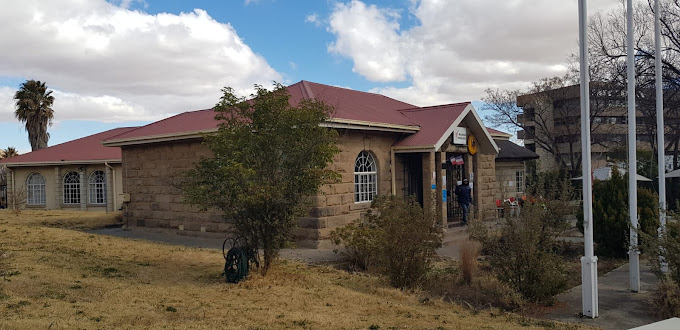Lesotho is lobbying for the renewal of the African Growth and Opportunity Act (AGOA), which is set to expire on September 30, 2025.
Enacted in May 2000 and re-authorised by the United States Congress in June 2015, AGOA is the cornerstone of US economic engagement with sub-Saharan Africa countries. It helps eligible nations diversify their exports to the United States, creating jobs and inclusive economic growth, by providing duty-free access to the U.S. market.
Lesotho is currently one of the Sub- Saharan African countries that benefit from preferential access to the United States market under the AGOA which grants +-6,700 products duty-free status.
United States importers of products that are made in Lesotho can import these goods duty-free, resulting in enhanced price competitiveness. These preferences are currently available until end September 2025, unless the AGOA legislation is extended or replaced by another arrangement beyond that date.
With Lesotho actively striving to secure an extension of AGOA, theReporter’s Neo Kolane spoke to senior public relations officer of the ministry of trade and industry, business and tourism, Liahelo Nkaota, to discuss the country’s stand and expectations.
Why is AGOA important for African countries like Lesotho?
The preferential trade agreement which allows Lesotho to export products to the United States without paying taxes presents a significant opportunity for economic growth and job creation in Lesotho.
The agreement facilitates the export of goods, offering Lesotho access to the American market, including up to 6,400 different products. This market access promotes economic expansion and also creates a ripple effect of job opportunities throughout the country.
The creation of jobs is not limited to factory workers alone. Various other sectors are impacted by the increased economic activity. Transportation services, for instance, see growth as workers and goods need to be moved from factories to distribution centres. Additionally, housing for factory workers becomes a booming sector, with rental properties seeing increased demand, which benefits landlords and construction companies.
Moreover, local street vendors selling fast food and other items around factories thrive as a result of increased workforce, thereby supporting the local economy.
What are the implications to Lesotho if AGOA expires in 2025 without an extension?
As Lesotho, we are already negotiating several other markets in case that happens. We’re not only dwelling on the USA market.
Lesotho’s strategy to expand its market reach beyond the U.S. is a smart approach to diversify its exports and reduce dependency on one market.
The country’s existing trade relations with South Africa, the Southern African Customs Union (SACU), the Southern African Development Community (SADC), and the European Partnership Agreement (EPA) offer a wide range of opportunities for its producers. However, there is a challenge meeting the demand of these diverse markets.
The problem with us as Lesotho expanding our production for these markets is our current production capacity, which is often not sufficient to fulfil the larger orders required by the SACU, SADC, and EPA markets.
What are the main concerns of African countries, including Lesotho, regarding the expiration of AGOA?
People are going to lose jobs but we need to take in mind that Lesotho is already trying to diversify its markets.
What actions are Lesotho and other African countries taking to secure an extension of AGOA?
The United States-Africa Forum in July 2024, themed “Beyond 2025: Reimagining AGOA for an Inclusive, Sustainable and Prosperous Tomorrow,” was a pivotal moment in shaping the future of trade relations between Africa and the U.S. The main focus was to secure the extension of the AGOA.
African countries expressed a desire for AGOA to be extended under the same terms as the current agreement, avoiding significant changes that could potentially become burdensome. The concern was that introducing new terms or stricter conditions could hinder some African nations’ ability to take full advantage of the trade benefits, especially those with smaller or less-developed economies.
Under AGOA, countries must meet certain eligibility criteria set by the U.S. to qualify for trade benefits. These include governance issues, the rule of law, human rights, and market-based economies.
The criteria have been a key factor in ensuring that countries receiving preferential access to U.S. markets meet certain democratic and economic standards. African nations at the forum discussed the importance of understanding and meeting these conditions to fully benefit from AGOA’s provision.
A significant milestone discussed at the forum was the introduction of a bill to reauthorise AGOA. This bill, which was signed by the 118th Congress during its second session, aims to extend the benefits of AGOA from September 2025 to September 2040.
How important is AGOA to Lesotho’s economic growth and trade relations with the United States?
The facility has helped with job creation, which in turn has a positive effect on economic growth through people paying taxes.
How has AGOA contributed to employment and industrial growth, particularly in the garment sector in Lesotho?
The manufacturing and textile industry is the second employer after government. It has employed thousands of people despite recent incidents of factories shutting down and worker retrenchments.
So, the garment industry has really contributed significantly to job creation in the country, to the betterment of Basotho livelihoods.
How will Lesotho ensure that its businesses and industries remain competitive in the global market in the event that AGOA preferences expire?
Even if the preference expires, Lesotho already has other markets it is tapping into. We saw the need not to looks at only one market because should anything happen to it, Lesotho will be doomed. Rather, we’re looking at ways to diversify our markets; right now Lesotho’s factories are already exporting to South Africa and are considering tapping into the African Continental Free Trade Area. As a country, we are going out to our producers to encourage them to take the opportunity of taking their products to that market.
When it comes to securing the extension, Lesotho plans to do bilateral negotiations with America and not as a block of Africa.








